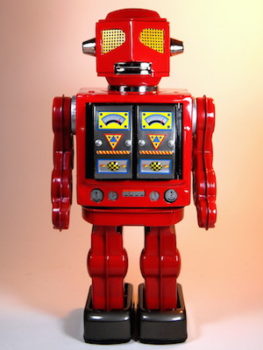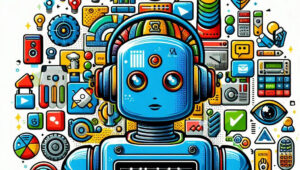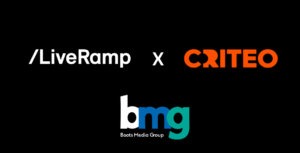Programmatic Advertising Has Ruined the 'Personal Touch'
by Romany Reagan on 1st Apr 2016 in News

Programmatic is the tool of choice for busy advertisers, helping us deal with moment-to-moment interactions. There’s a place and purpose for all tools; but it shouldn’t replace the human touch all together. In this piece, Rich Kahn, CEO, eZanga.com (pictured below), explains why the lack of personal touch is harming everyone, except the bots.
Do you remember as a child, thumbing through a rest-stop display rack, trying to find your name on a keychain or license plate? We got excited seeing our name in print, or disappointed when we didn’t. Coca-Cola touched our hearts, bringing back the joy of finding our names, no less, on a Coke bottle. No advertising was needed, but we’d dig and dig to find our names, resulting in a selfie to share our discovery with friends.
That wasn’t really advertising for Coca-Cola, but it elicited a personal response. What we do as advertisers has changed; and we’ve allowed ourselves to be less personal with our audience.
For instance, programmatic software allows advertisers to set bids on real-time auctions to gain guaranteed ad placement on publisher websites. The human touch really only comes into play in setting the bids for placement of the ads – how impersonal is that?
Programmatic is the tool of choice for busy advertisers, helping us deal with moment-to-moment interactions. But, as with any tool, advertisers get lazy, assuming the tool will always be doing its job exactly how it was asked to perform. When we count on programmatic to ‘handle it,’ we lose touch with our campaigns and reality. There’s a place and purpose for all tools, but it shouldn’t replace the human touch all together.
Programmatic is in Essence a Bot
Malicious bots attack low-hanging fruit, places they can easily infiltrate with no retribution. They change rapidly, morphing themselves to learn new tactics and tricks to remain undetected. Advertisers trust their ads will be placed on brand-safe sites when they plug into programmatic, and adverts are served in the manner they’ve indicated. But, it's a ‘trust then verify’ mentality.
Programmatic advertising is built on software that is only as smart as we teach it to be. And, with 94% of marketers saying marketplace quality was a very serious or somewhat serious issue in programmatic, the bots are winning this battle.
Still, marketers are quick to turn a blind eye. They’re still making money, and so are the bots – a short-term win for everyone involved.
Bots Are Wolves in a Sheep's Clothes
Bots are good at getting to your advertising programs because they’re good at going undetected. Bots can be taught, by their creators, to perform exactly as a person would. If they’re successful, advertisers are happy with their results and the traffic they receive, and the bots win. It’s a no-brainer.
Albeit crafty and cunning, bots haven’t figured out how to complete a purchase – yet. Bots bank on marketers to adopt the ‘set-it-and-forget-it’ mentality with programmatic advertising. Programmatic still offers a low-risk, high-reward situation for marketers. Sure, you might lose some money to bots; but it will return some value while freeing up time to work on other projects that enhance your bottom line.
Nothing Replaces the Power of the Human Mind
As with any advertising, success is predetermined by metrics that are important to you or your client. We depend upon data to make associations, inferences, and plans in relation to our advertising campaigns. This data helps us see not only what has happened, but to make guesses and assumptions about what will happen next.
Humans have the ability to see patterns developing over time, and can review data holistically. Humans can sort through data and see emerging patterns or inconsistencies for which software is simply not trained to look.
Bots are generally pretty intelligent; they can surpass software that knows to look for certain markers and will avoid raising a red flag. And, while bots are able to be technically perfect with the functions they’re performing in real-time, they create patterns over time.
Reliance strictly on software, or humans, will likely lead to dismal long-term results. Rather, it should be a well-balanced relationship between human interaction and software to truly make the most of your data.
Programmatic buys have made a marketer’s job easier; but, unfortunately, it’s helping to perpetuate a bot-buying environment. When we painstakingly handpicked our digital buys, there was a ‘pride of ownership’ mentality, and we took a bad buy as a blow to our ego.
Today, we rely on the assumption that programmatic software is smarter and more agile than bots and that they can make better, stronger, and more poignet decisions than we can. As an industry, the lack of personal touch is harming everyone, except the bots.
Ad FraudAdvertiserDisplayProgrammatic









Follow ExchangeWire